Policy, Progress and People behind the African Continental Free Trade Area
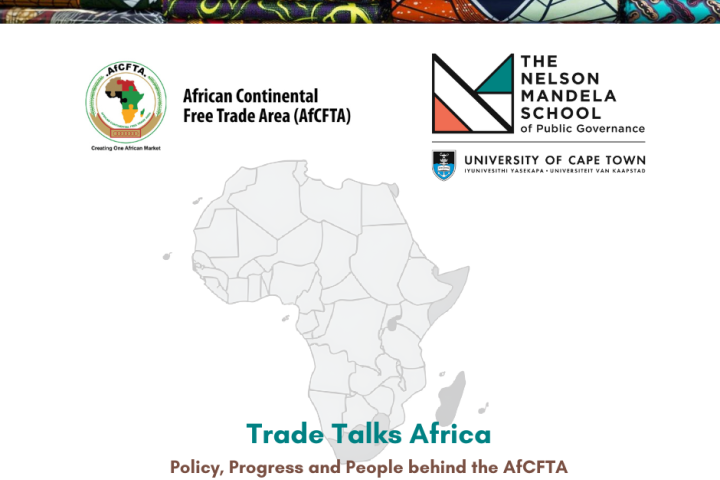
A New Voice for African Trade Integration
Welcome to the inaugural issue of Trade Talks Africa, the official newsletter of the African Continental Free Trade Area (AfCFTA) Trade and Industrial Development Advisory Council; the Council was launched in February 2022. The Advisory Council was established to support the implementation of the AfCFTA through strategic guidance, technical advice, and policy dialogue. With a defined work programme in place, the Advisory Council focusses on actionable steps that move the AfCFTA from agreement to impact.
Trade Talks Africa is the Nelson Mandela School of Public Governance’s platform to keep stakeholders informed and connected. It offers curated insights into the progress of the Advisory Council’s work and captures major developments under the AfCFTA banner. This first edition offers highlights from the month of May 2025, which has been rich with momentum on key critical issues, namely:
- G20 and Africa’s Global Voice - South Africa is chairing the G20, African trade and industrial priorities are gaining much-needed global attention—positioning the AfCFTA within broader debates on sustainability and economic justice.
- AfCFTA Digital Trade Forum in Lusaka, Zambia - the forum explored strategies to close digital divides, promote safe digital transactions, and advance Africa’s position on the AfCFTA Protocol on Digital Trade.
- AfCFTA Competition Tribunal - the launch of this tribunal marked a significant step in institutionalising the competition policy framework. It signals that the real work continues after protocols are signed.
- Academic Corner – in partnership with the Nelson Mandela School of Public Governance: This section features upcoming research dialogues and knowledge exchange activities aligned with the Advisory Council’s goals.
This newsletter is more than a bulletin, it’s a channel for sharing Africa’s integration story as it unfolds. We look forward to bringing you thoughtful commentary, institutional updates, and a closer look at the people and policies shaping the AfCFTA.
Stay informed and stay engaged. Regional Integration Matters!
Sincerely
Trade Talks Africa | editorial team
Noncedo Vutula, Agisanang Magooa, Tebogo Lefifi and Petunia Thulo
Positioning the AfCFTA at the first G20 Summit in Africa
South Africa will host the G20 summit in November 2025. The G20 facilitates global economic cooperation in environmental, social, and economic issues to enhance economic resilience. South Africa's G20 Presidency follows a cycle of G20 Presidency hosted by countries in the South marked by Indonesia in 2022, India in 2023, and Brazil in 2024. This distinctive moment offers prospects for the sustained implementation of a developmental agenda led by prominent nations in the Global South. The African Union (AU)'s full membership in the G20 since 2023 has put Africa’s developmental agenda in the forefront to the discussions. The priorities of the African Union within the G20 framework include agriculture, trade, climate action, and the global governance of artificial intelligence (AI). South Africa’s G20 presidency happens during a time when the geopolitical tensions and unilateral actions by powerful nations are undermining the traditional consensus-driven multilateral governance approach, leading to stalemate and inefficiencies in addressing global challenges such as climate change, economic inequality, and conflict resolution. The article emphasises the need for reforms to restore trust and cooperation in multilateral systems to effectively tackle these pressing issues.
The prominence of trade in the G20 agenda underscores the essential participation of the African Continental Free Trade Area (AfCFTA). The AfCFTA represents a comprehensive free trade agreement designed to unify all 55 member states of the African Union into a single market, thereby enhancing consumer demand and fostering intra-African trade and investment. This initiative is a cornerstone of the AU's Agenda 2063, striving to liberalise trade, harmonise trade rules and industrialise the continent. South Africa continues to push for reforms in global financial governance and greater support for developing nations. South Africa is also advocating for equitable climate finance, debt relief for developing nations, and reforms in international institutions like the IMF and WTO to better serve low-income countries. The various working groups of the G20 are diligently engaged in discussions that will significantly influence the outcomes of the G20.
This degree of involvement should highlight the prevailing global issues and strong economic interconnections between African nations and G20 countries, while also capitalising on the opportunities presented by the AfCFTA. The AfCFTA offers a platform for G20 and African leaders to enhance development in Africa. In addition, the economic interdependence between African nations and G20 countries implies that G20 strategies, such as the rebalancing of trade and consumption, should result in mutually beneficial developmental outcomes. In addition, there is an increasing necessity to redirect efforts toward the development of the future of trade relations, which should be characterised by strong connections to competitive production, economic diversification, and transformative economic strategies. At this critical juncture, the convergence of G20 strategies and the AfCFTA's objectives offers a unique opportunity to transform global trade dynamics in a manner that promotes sustainable development, shared prosperity, and a reimagined role for Africa in the global economy.
AfCFTA launches the AfCFTA Digital Trade Forum in Lusaka
The first AfCFTA Digital Trade Forum took place in Lusaka, Zambia from 8 - 10 May 2025, where technology leaders, politicians, business leaders, and State Parties got together to discuss digital trade within the AfCFTA framework. This Forum comes after the Protocol on Digital Trade was adopted by the African Union Assembly during its 37th Ordinary Session in February 2024., This Forum is a big step towards creating a single, open digital market across the continent. The discussions during the forum covered technology use in Africa, improving e-commerce, making digital payments easier and harmonising regulations. All these issues are important for making intra-African trade work better and improving regional integration. The Forum also discussed coordination of national efforts with the aim of meeting their specific digital needs and developmental objectives. The Forum offers a strategic platform to deliberate on actionable measures for enhancing Africa’s digital economy, with particular emphasis on operationalising the Protocol on Digital Trade through concrete policy interventions and implementation frameworks.
Key continental developments
- 54 African Union Member states have signed the consolidate text of the agreement establishing the AfCFTA. Eritrea is the only member of the African Union that has not the agreement establishing the AfCFTA.
- 49 Members of the African Union have ratified the AfCFTA Agreement
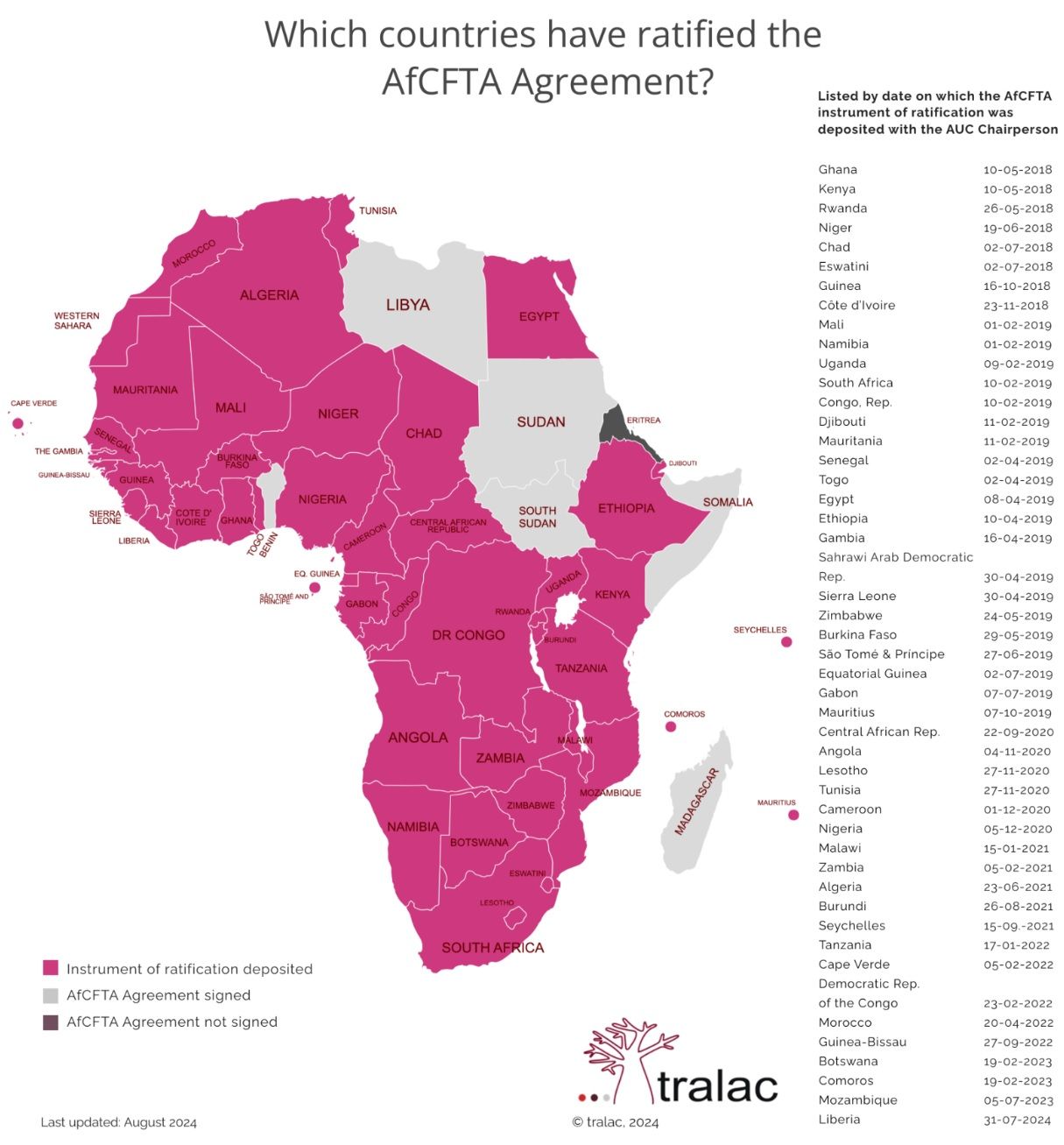
Policy tracker at a glance
| Instrument | Status | Notes |
| Protocol on Digital Trade | Adopted | Ratified by 15 countries |
| Protocol on Competition Policy | Adopted | Awaiting domestic legislation |
The AfCFTA Competition Protocols now in motion
The inaugural AfCFTA Heads of Competition Authorities Meeting was held in Cape Town from 19 - 20 May 2025. This event marks a significant milestone in operationalising the AfCFTA Competition Authority and Tribunal, which is designed to promote a vibrant African market, eliminate anti-competitive practices, and ensure equitable trade.
Meet the three trailblazers of AfCFTA Digital Trade

|
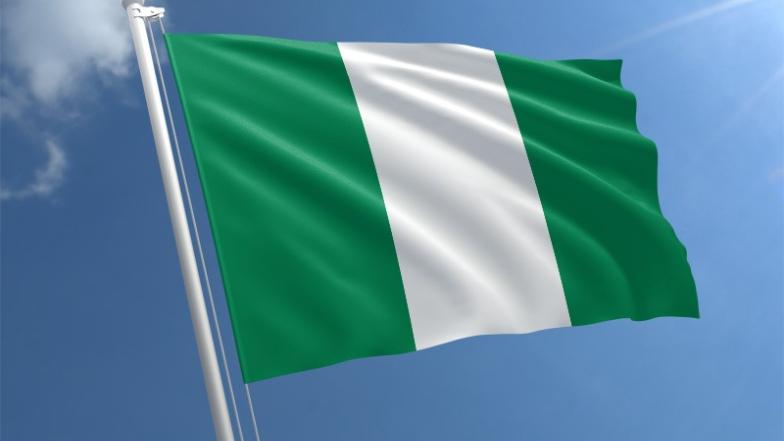
|
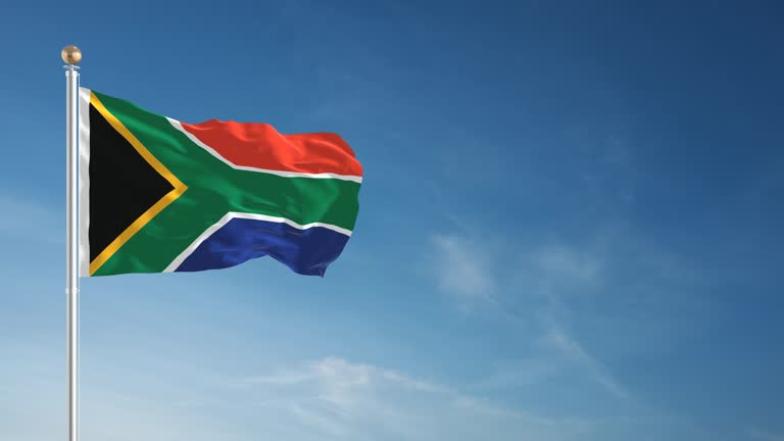
|
|
In hosting the inaugural AfCFTA Digital Trade Forum, Zambia underpins Lusaka as a digital innovation and investment hub in alignment with its National E-Commerce Strategy. This strategy aims to boost market access, supply chain efficiency, and employment, especially for young and startup companies. The Minister of Commerce, Trade and Industry, Minister Chipoka Mulenga, highlighted that the role of this strategy is harmonisation of digital laws and supporting e-commerce to ease cross-border trade.
|
Nigeria, a proponent of the AfCFTA Protocol on Digital Trade, organised its inaugural hackathon in Lagos from 1-3 May 2025. The Hackathon discussed topics such poor community access to connections and safe, accessible digital payment alternatives. With Nigeria at the forefront of Africa's digital trade revolution, gatherings like the AfCFTA Digital Trade Hackathon are vital for fostering creativity and teamwork amongst those working towards a better, more interconnected continent.
|
On 2 May 2025, the South African Minister of Trade, Industry, and Competition, Parks Tau, led a high-level business sector meeting with Nigerian Minister of Minister of Industry, Trade, and Investment, Dr Jumoke Oduwole, in Johannesburg. The talks focused on increasing bilateral trade, with digital trade as a priority. Minister Tau underlined the need for digital infrastructure and technology-intensive global value chains to maximize South Africa-Nigeria commercial cooperation.
|
Turning plans into actions: AfCFTA Advisory Council work programme
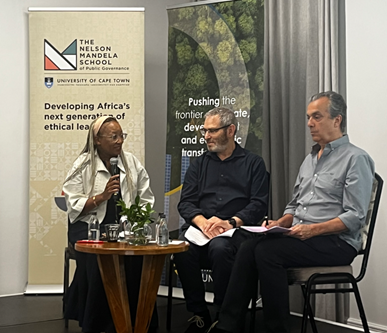
On 18 March 2025, the AfCFTA Trade and Industrial Development Advisory Council convened for its meeting to discuss the execution of its work plan. The work programme is organised into four working groups:
- Industrialisation and Value Chains
- Phase II Issues
- The AfCFTA Academy
- Climate Change and Sustainable Development
What's happening at the Nelson Mandela School?

Past conference: The Nelson Mandela School in collaboration with the Remaking Trade Project, Forum on Trade, Environment and the SDGS (TESS), and the German Institute of Development and Sustainability (IDOS) hosted a two-day workshop on Reimagining Cooperation on Trade and Sustainability: An African Perspective held on 26-27 May 2025 Cape Town, South Africa. The event explored critical aspects of trade and sustainable development governance, with a focus on industrialisation, value chain development, new sources of finance, and Africa’s positioning in global trade reforms. The conference welcomed over 80 attendees from across the globe and various international institutions.
Upcoming webinar: From Agreement to Action: Phase II of the AfCFTA Explained from July 2025: hosted by the Nelson Mandela School of Public Governance and the Nigerian Institute for Advanced Legal Studies.
Research spotlight: Byiers, Bruce, Faizel Ismail, and Philomena Apiko. How AfCFTA-Regional Relations Can Support Continental Trade. European Centre for Development Policy Management (ECDPM), 25 Sept. 2024
Latest publications from the AfCFTA Advisory Council members
- Lopes, Carlos. 2024. The Self-Deception Trap: Exploring the Economic Dimensions of Charity Dependency within Africa-Europe Relations. Cham: Springer.
- Lebdioui, Amir. Survival of the Greenest: Economic Transformation in a Climate-Conscious World. Cambridge University Press, 2024.
- Zeufack, Albert G., et al., editors. Making the African Continental Free Trade Agreement a Success: Pathways and a Call for Action. 1st ed., World Bank, 2024.
- ReSAKSS & IFPRI. (2024). Africa Agriculture Trade Monitor 2024. International Food Policy Research Institute (IFPRI).
Thought Leadership
Mathews, John A., and Arkebe Oqubay, editors. The Oxford Handbook on the Greening of Economic Development. Oxford University Press, 2025.
Let's stay connected: subscribe to the Nelson Mandela School mailing list and connect with us on LinkedIn.
